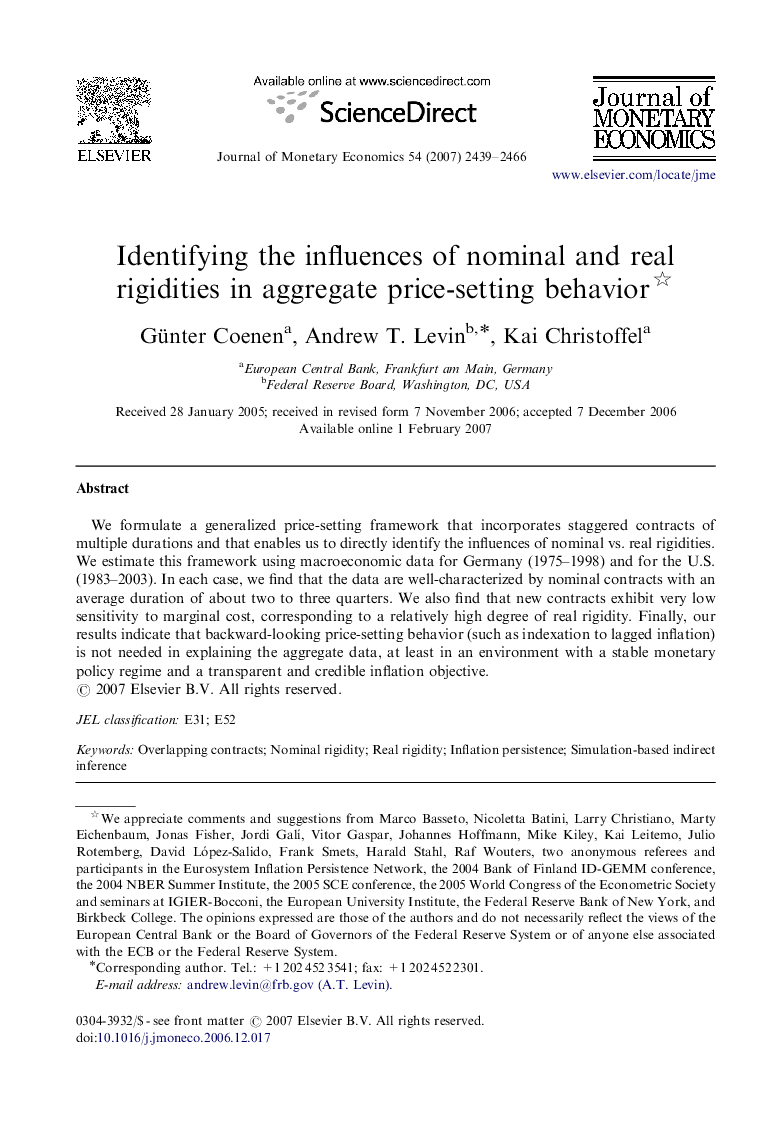| Article ID | Journal | Published Year | Pages | File Type |
|---|---|---|---|---|
| 967329 | Journal of Monetary Economics | 2007 | 28 Pages |
Abstract
We formulate a generalized price-setting framework that incorporates staggered contracts of multiple durations and that enables us to directly identify the influences of nominal vs. real rigidities. We estimate this framework using macroeconomic data for Germany (1975-1998) and for the U.S. (1983-2003). In each case, we find that the data are well-characterized by nominal contracts with an average duration of about two to three quarters. We also find that new contracts exhibit very low sensitivity to marginal cost, corresponding to a relatively high degree of real rigidity. Finally, our results indicate that backward-looking price-setting behavior (such as indexation to lagged inflation) is not needed in explaining the aggregate data, at least in an environment with a stable monetary policy regime and a transparent and credible inflation objective.
Related Topics
Social Sciences and Humanities
Economics, Econometrics and Finance
Economics and Econometrics
Authors
Günter Coenen, Andrew T. Levin, Kai Christoffel,
